Ontario Pork Congress: Disease updates, Quebec processing ramifications and the return of the pigs

The Bacon Maker Classic 4-H swine show returned to the Ontario Pork Congress in 2024. Article and Photo: John Greig
The 51st Ontario Pork Congress, and the second since a two-year COVID break, returned to Stratford, Ont. June 19 and 20.
Hog farm numbers continue to decline, while hogs produced in Ontario grow. Farmers are gradually converting their barns to group sow housing, or are building new barns, usually with greater production capacity, resulting a what’s called a ‘quiet expansion’ for the industry.
Here are some of the topics of discussion that were heard at the Pork Congress. Watch for in-depth coverage on our websites, in Farmtario newspaper and in Glacier FarmMedia’s Hog Hub.
Live pigs back at Ontario Pork Congress
The Bacon Maker Classic, a 4-H swine show, was back at the Ontario Pork Congress after being last run in 2019. It was cancelled during the COVID absence of the congress, and last year because of disease concerns.
All the pigs coming to the show had to be tested the week before for Porcine Endemic Diarrhea and Delta Coronavirus. A Danish entry is a common way for farmers to make sure that outside materials don’t enter their barns and a type of Danish entry was used at the show and anyone entering the show area had to put on biosecurity boots, after stopping at a bench that kept outside shoes without covers on one side, and people wearing biosecurity boots on the other.
There were 28 4-H members who registered for the competition.
More hogs processed in the U.S. creates disease management challenge
The effects of a pullback of hog processing in Quebec continue to have ramifications for Ontario producers.
Olymel shut some of its largest hog processing facilities in Quebec over the past couple of years, the provincial government created a sow-reduction plan and a commission to manage that plan has required remaining processors to accept only Quebec hogs if available.
That means that thousands of Ontario hogs which were processed in Quebec have had to find new places to be processed.
Those hogs are mostly going to the United States, but some are also moving to Manitoba, says Blair Cressman, director of the marketing division at Ontario Pork, at the Ontario Pork Congress.
Ontario has been short of shackle space to process the hog produced here since Quality Meats went bankrupt in 2014.
The movement of more hogs to the U.S. has challenged the industry with more disease. Trucks moving more pigs into the U.S., where hog disease is more widespread, then have to return to Canada.
Those trucks often carry disease, says Greg Wideman, a swine veterinarian with South West Vets. American truck washes often recycle their water, and at the same time, risk of disease, he says.
Hog Jog raises about $65,000
The annual Hog Jog at the Ontario Pork Congress had to be cancelled due to an impending thunderstorm, disappointing more than 600 runners but the event still raised about $65,000 which will go to the creation of a garden at Stratford-Perth Hospice.
International worker program continues to grow
Hog farms continue to increase their use of foreign workers and that means demand for the international worker program at the Ontario Pork Congress continues to grow.
There were about 70 workers who attended presentations on the first day of the congress and 50 on the second day, says organizer Abel Lopez of Grand Valley Fortifiers. The program first started 10 years ago when foreign workers first arrived to work on Ontario hog farms.
The workers tour the show and have programs presented to them on industry or technical issues by experts in either Spanish or Tagalog for Filipino workers.


